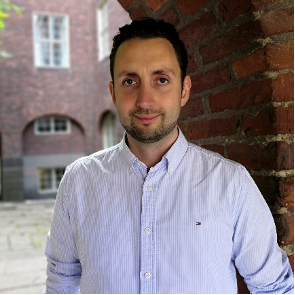About the project
Objective
The overall goal of the project is to develop optimization frameworks to assist in process design, learning accurate models from process data, and support optimal decision-making. The optimization algorithms and frameworks will be tailored towards the needs and processes of interest for LKAB. The type of optimization problems considered in the project falls into the category of “Gray-box” optimization, where parts of the optimization problem are known analytically, but some parts are given by a simulator. The simulator is not necessarily a complete black box, but the simulation model can be too complex to be integrated directly into the optimization model.
Designing industrial processes is a challenging task and often requires the use of advanced design and simulation software. For example, accurately describing the process and physical phenomena involved often requires the solution of systems of partial differential equations (PDEs) or a Computational Fluid Dynamics (CFD) simulation. Therefore, evaluating the impact of simply changing a single design parameter can require running a CFD or solving a large system of PDEs and may also require access to chemical and thermodynamic libraries. Solving such systems is a challenge on its own, and in practice, requires the use of advanced simulation software. The main downside of such software is the inherent black-box nature; you can evaluate a single specific design choice at a time, but the end-user does not gain more knowledge. In practice, when such software is used for process design the engineers often follow some common rules of thumb and trial and error to come up with a good design that can be evaluated by software and later put into production. However, the resulting design might be far from globally optimal, i.e., there might exist a far more superior design. Employing such a sub-optimal solution can, e.g., result in increased environmental impact due to a higher energy consumption, increased raw material usage and waste. Furthermore, when used in investment planning and feasibility studies, the sub-optimal designs can cause superior technologies/solutions to seem unreasonably expensive and maybe even economically infeasible. Therefore, there is a strong need for frameworks that enable the combination of simulation software with optimization algorithms to find optimal process designs.
Background
LKAB is an international mining and minerals group that supplies sustainable iron ore, minerals and specialty products. Since 1890, the company has evolved through unique innovations and technology solutions and is driven forward by more than 4,500 employees in 12 countries. The company is the largest supplier of iron ore in the European Union and a key player in the transformation of the iron and steel industry towards sustainability. LKAB’s goal is to develop carbon-free processes and products by 2045.
The work to eliminate carbon emissions creates new challenges and opportunities. Potential routes and new ideas are continuously being investigated and evaluated. As the production processes are complex and experiments often expensive and time-consuming, the feasibility and potential of new alternatives are often investigated numerically through computer simulations. Currently, computer simulations are used in a black-box fashion, i.e., you can evaluate a specific configuration of process parameters, but you don’t gain any more information or knowledge of the best configurations. Therefore, it is of utmost importance to utilize the full potential of the models and to find the best solutions. This project aims to provide a key component for a systematic model-based design approach.
Increasing computational power, increasing amount of data, and overall digitalization are continuously boosting the potential benefits of extensive computational simulations in process design, but how to best utilize simulators is not trivial. To learn and extract knowledge from the process simulations, the project aims to develop deterministic optimization methods and frameworks for determining optimal designs and operations.
Crossdisciplinary collaboration
The project is a collaboration between LKAB and KTH, where we are focusing on developing optimization algorithms suitable for tackling challenging optimization tasks in industrial production processes. The project brings together expert knowledge from Process Systems Engineering, Applied Mathematics, Optimization, and Process Simulation.
Participating in the project:
- David Liñan Romero, KTH, Postdoc researcher
- Jan Kronqvist, KTH, PI
- David Ek, LKAB, PI
- Daniel Marjavaara, LKAB, co-PI
- Anders Forsgren, KTH, co-PI


